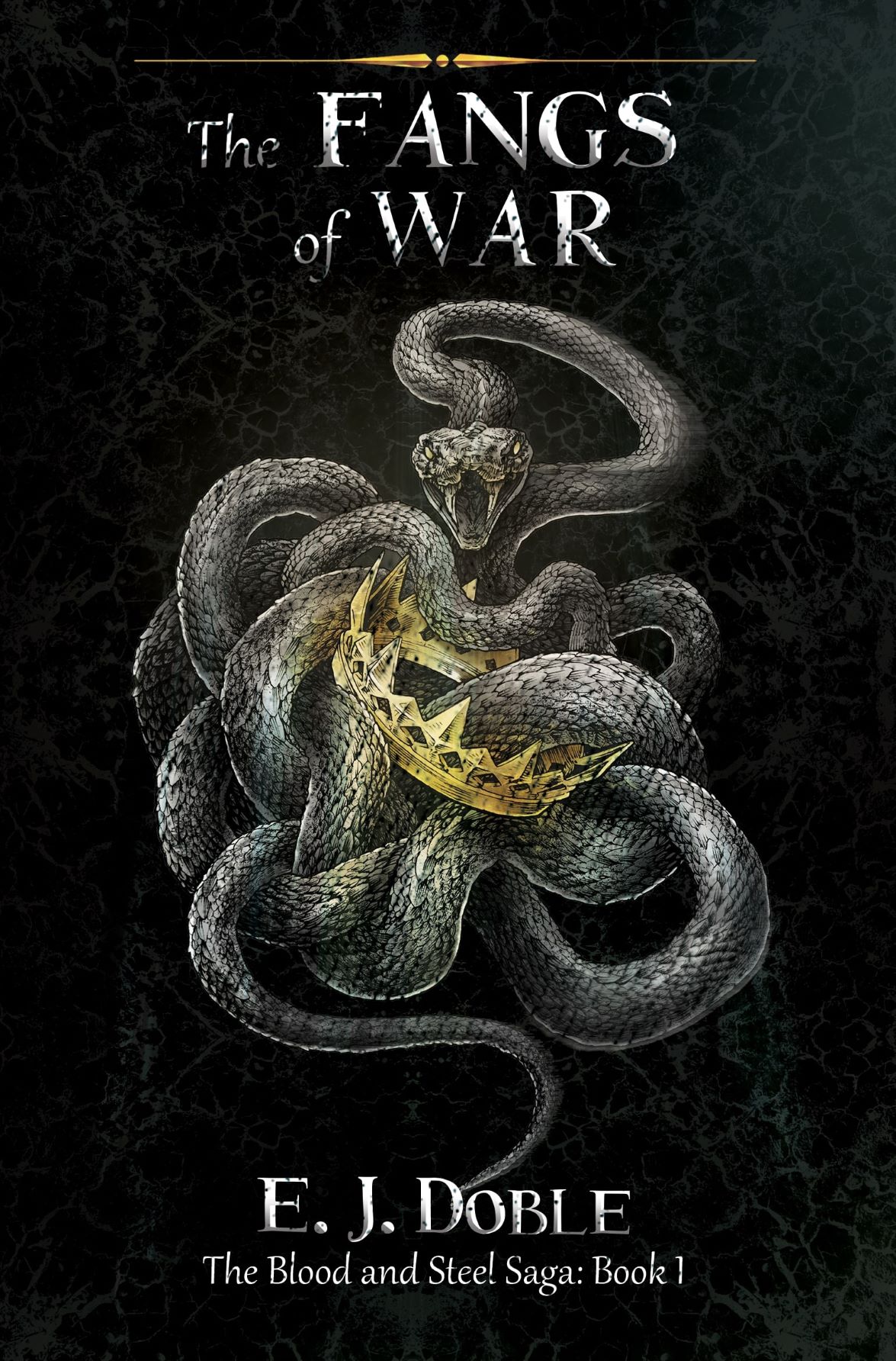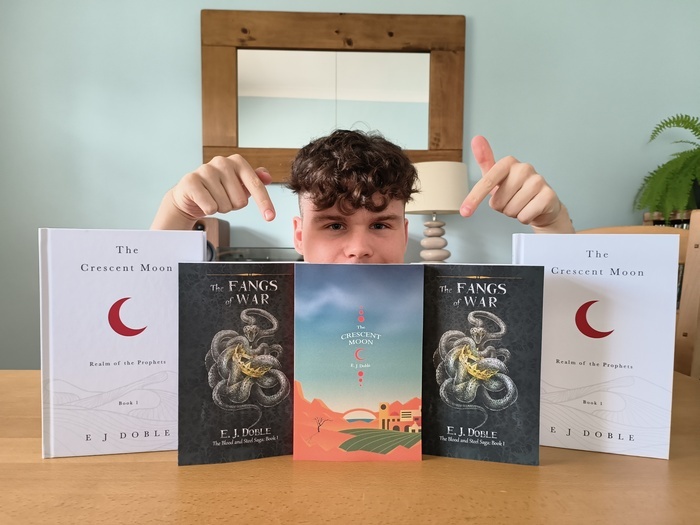The Writer's Path - E.J. Doble
12 Aug 2023When I published my first book at the start of 2022 - a grimdark fantasy novel called The Fangs of War - I turned to my partner before I pressed ‘publish’ and gave a shrug. I had no editor or proofreader: I had done it all myself, and had managed to obtain a map and front cover with whatever meager savings I had as a 20 year old man. The book was many things, and one of those was ‘far from perfect’.
‘It’s not brilliant, and is a bit rough around the edges… but it’s good enough, and hopefully some people will like it’, were the words I said to my partner, just before I hit the button to publish and released the book out to the world.
And, looking back on it 18 months later, with over 1200 copies sold in 15 different countries, I still feel the exact same way about it. I still think it’s a good book with a few rough edges. I still think it’s a good start to a series that will be occupying my life for the next five years at least. It’s something very precious to me: the delicate, toddler-like first steps into a vast, uncharted world, with my debut novel like a sewn-up scrapbook I made with crayons and craft glue.
So, why do some many writers not feel that way?
It’s a common (and accurate) conception that writers as a whole ‘get better’ the more they write, and that the differences between their first book and their last are probably astronomical. The outside world influences their work; the books they read in their genre influence every chapter and paragraph they create. We are creatures of adaptation and development, first and foremost, and creating our own ‘unique’ story derives from that collective experience that we get as we grow as people.
I always thought that The Fangs of War was a rough-around-the-edges book, with some consistency issues and overtly-descriptive scenes. I also think, genuinely, that every book I have written since my debut’s release has improved upon that original in incremental ways. But it was only very recently that I also learned to accept that for what it is: that my first release is not as good as the rest, and that that’s okay. As with the first draft of a new project - an unedited, garbled mess of thought - the expectation is never that it’s perfect, only that it is the start of a process of improvement to create the best final piece that you can. The same goes for writing books, and especially series: the first and the last will be very different in quality and structure, because YOU as the writer are not the same person as that first book. I published my first book when I was 20 - my estimations show that I will be 26 when the series is finished. So, why would Book 1 and Book 5 be the same?

I have spoken to and come across a number of people in the indie writing community who struggle with this, suffering with something I like to call ‘constiency syndrome’. Many up and coming indie writers, and established indie writers with a few books under their belt, get caught up with the idea of ‘consistency’ and how the books should mirror each other in tone and quality throughout a series. The series should be cohesive, start to finish, and anything that doesn’t meet that standard is considered ‘sub-par’ - even if the book is the first book they’ve ever written. Some authors mitigate this issue and re-edit their first or second books to improve the overall quality, so as not to deter new readers (I did a brief rewrite of The Fangs of War for this exact reason). But then again, some authors will also then rewrite their first book once the series is complete, because they are so ashamed or unimpressed with the shift in quality. And some authors, further down the line, shelve entire series because they don’t feel the books match the quality of their current projects and publications, even if it was written 10+ years prior.
A good author is their own worst critic, and will constantly strive for improvement in all aspects of their career - but that does also mean they can be overly critical and unaccepting of their own writing journey, as if they need to rewrite the past. In comparison, a great author is their own worst critic, but also accepts their journey for what it is: experience. Their writing forms a path - a literal papertrail - between ideas and stories of the past, growing and developing into future works. That is how people grow - that is how writers grow. Not with shame, or re-edits, but with acceptance, and progress.
Writing is an art form. Drafting, planning and editing are the sketches; cover art and map designs are the paint; publication is putting it on display in a gallery. Every part is necessary; not all parts are always coherent. Each iteration builds upon the last through experience. Perfection is not obtainable: if it’s good enough for you, it’s good enough for the world to at least see it. ‘Good’, or even ‘satisfactory’, should not be heinous words in the indie publishing world: the joy of self-publishing is it allows you to take the plunge and take a risk, and let the world decide how you proceed. Never try and ‘quality control’ writing for the sake of consistency between books, otherwise you’ll never publish that debut novel, and you’ll never be fully satisfied with that completed series.
So, to writers I say: accept the flaws of a writer’s development. Don’t fear mistakes, and don’t be ashamed of things being ‘good’. Kick the ‘consistency syndrome’, and stop rehashing old material. Publish that debut; complete that series; shrug those negative reviews off. Keep writing, and doing what you love, and the rest will fall into place in the end.
About E.J. Doble

E J Doble is 21 years old from Bath, UK. He is a self-published author, whose first novel, THE FANGS OF WAR, was released in January 2022. He is a part time swim teacher, and painter.
When not writing, he is most often found drinking excess amounts of coffee and tending to a variety houseplants with odd and entirely pointless names.
